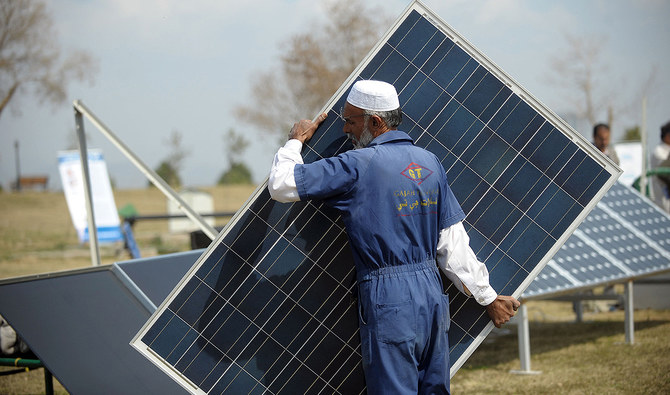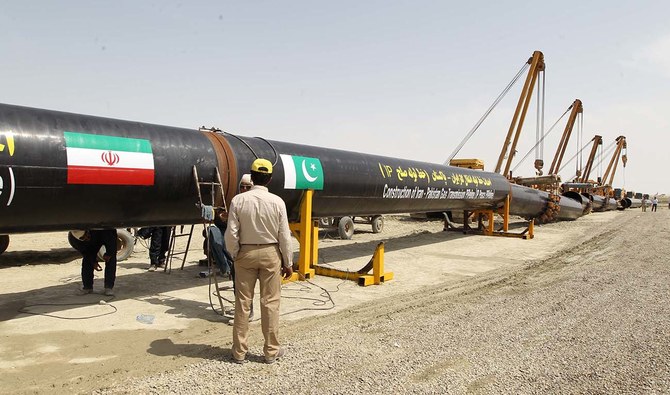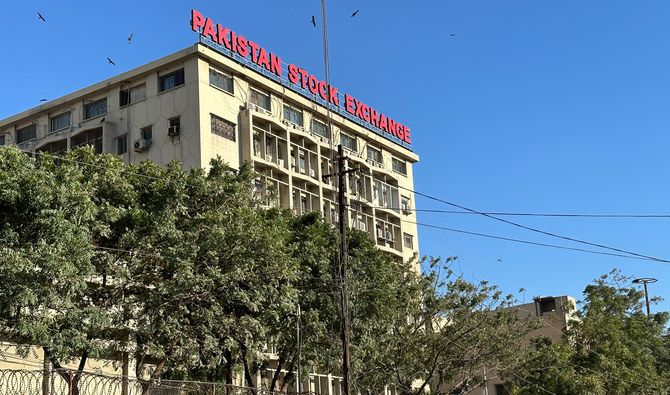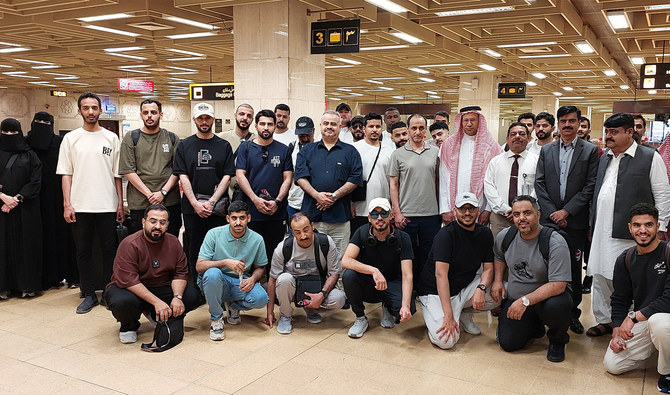ISLAMABAD: The price of solar panels has plummeted by over sixty percent in Pakistan in recent weeks due to bulk imports from China because of lower rates, importers said this week, with more consumers switching to the renewable source of power to reduce electricity bills.
The cost of producing solar panels in China, which accounts for about 80 percent of global consumption, plummeted by 42 percent in the last year, giving manufacturers there an enormous advantage over rivals in places like the United States and Europe. Multiple European solar manufacturers have announced plans to close factories in recent months, under price pressure from Chinese imports. China accounts for 80 percent of solar module production capacity after years of subsidies.
Pakistan has ideal climatic conditions for solar power generation, with over nine hours of sunlight in most parts of the country. Utilizing just 0.071 percent of the country’s area for solar photovoltaic (solar PV) power generation would meet Pakistan’s electricity demand, according to the World Bank.
But currently, only 5.4 percent of Pakistan’s installed power generation capacity of 39,772 megawatts comes from renewables like wind, solar and biomass, while fossil fuels still make up 63 percent of the fuel mix, followed by hydropower at 25 percent, according to the National Electric Power Regulatory Authority (NEPRA).
But this may change with an acute drop in the price of panels, importers said.
“A solar plate of 580 watts that I bought [last year] for 75,000 rupees [$270] has dropped to 25,000 rupees [$90] now,” Muhammad Yahya, a solar importer in Islamabad, told Arab News on Thursday. “That means it’s one-third of [earlier price].”
“The rates of the inverters are the same and keep fluctuating, but the main thing is solar panels and the rates of the solar panels are now 33 percent lower.”
Prices of solar panels dropped in China following import curtailment from major buyers including India, US and Europe while the Pakistani government had abolished a 17 percent sales tax to encourage solar imports, Yahya said, explaining the reduction in panel prices:
“People who would import through illegal channels, they [the government] blocked them, this helped stop the illegal import, and led to a bulk import, and secondly the rates [of solar panels] have dropped in China.”
Another solar panel importer in Islamabad, Abdul Moiz, agreed that the rate drop in China and curtailment of imports to India and other major buyers had led to bulk imports to Pakistan.
“America and India have stopped their imports [from China], that’s why the majority of the imports are now directed toward Pakistan,” Moiz told Arab News.
“CLIMATE CHANGE”
Despite the benefits, including to the environment of zero carbon emissions from solar panels, Pakistan is far behind in meeting its goal of shifting to 60 percent renewable energy by 2030 with 50 percent reduction in projected emissions.
Experts say procedural and bureaucratic delays in construction approvals and unattractive tariffs for selling power to the national grid coupled with a lack of political will and little government investment had blocked the progress of the solar industry in the past. For households, a big impediment, before the Chinese rate cuts, was the steep initial investment.
But that has changed, with electricity consumers describing the drop in solar panel prices as a ‘big relief’ in reducing their electricity bills.
“After its [solar panel] installation, our [electricity] cost has reduced to thirty percent,” Imran Ali Gul, a manager at a local hotel who has installed a 16kw system, told Arab News. “That’s why we preferred to get the solar system installed.”
Aamir Hussain, chairman Pakistan Alternative Energy Association, told Arab News Pakistanis purchased and installed solar panels of around 1800 megawatts last year, which was expected to jump to 3,000 megawatts this year due to the lower prices of the panels and increased customer demand.
“Pakistan will be spending over $3.5 billion [this year] on solar panels imports only as this doesn’t include import of batteries, inverters and other auxiliary items,” Hussain said. “Pakistan needs to follow consistent policies regarding renewable energy to meet its national and international obligations for the greenhouse gas emissions.”
Experts also said Pakistan, one of the most vulnerable nations to climate change impacts, needed to swiftly move to end its reliance on fossil fuels.
“There is no denying of the fact that climate change has wreaked havoc globally, so the studies suggest that in order to meet the global targets of reducing our temperature etc, in addition to transition of existing fossil fuel power plants, we should cap these fossils as well,” Manzoor Ahmed, a researcher at the Policy Research Institute for Equitable Development in Islamabad, told Arab News.
“So, given this roadmap, given our commitments in terms of net zero emissions or COP conferences where we agreed to meet global targets, we have no choice but to shift to renewables and we must do it.”
Demand for solar power rises in Pakistan as import glut crashes panel prices
https://arab.news/wju6g
Demand for solar power rises in Pakistan as import glut crashes panel prices

- Businessmen say solar panel prices have dropped by over sixty percent due to bulk import, rate cuts by China
- Islamabad currently only generates around five percent of its energy from renewable solutions like solar power
Iran, Pakistan seek ways to complete gas pipeline project

- Both countries signed agreement to construct the pipeline from Iran’s South Fars gas field to Pakistan’s Balochistan, Sindh
- Tehran says has invested $2 bln to construct pipeline, but work on Pakistan side has been held up due to fears of US sanctions
KARACHI: Iran and Pakistan are looking at ways to complete a long-delayed gas pipeline project between the two countries, Iran’s Consul General to Pakistan, Hassan Nourian, said on Monday.
“We see political determination from Pakistan to complete the project,” he told reporters in the southern city of Karachi.
The countries signed an agreement to construct the pipeline from Iran’s South Fars gas field to Pakistan’s Balochistan and Sindh provinces in 2010, but work on Pakistan’s portion has been held up due to fears of US sanctions.
The 1,900 kilometer (1,180 mile) pipeline was meant to supply 750 million to one billion cubic feet per day of natural gas for 25 years to meet Pakistan’s rising energy needs.
Tehran says it has invested $2 billion to construct the pipeline on its territory. Pakistan, however, did not begin construction, citing international sanctions on Iran as the reason.
In 2014, Islamabad asked for a 10-year extension to build the pipeline, which expires in September this year. Iran can take Pakistan to international court, industry watchers have said.
Faced with potential legal action, Pakistan’s caretaker administration this year gave the go ahead in principal to commence plans to build an 80km segment of the pipeline.
In March, Islamabad said it would seek a US sanctions waiver for the pipeline. The US, however, said it did not support the project and cautioned about the risk of sanctions in doing business with Tehran.
Nourian on Monday said the pipeline did not come under international restrictions, and that the two countries were discussing the issue.
He did not answer a question about the potential for Iran to take legal action against Pakistan if it did not complete its side of the pipeline this year.
Pakistan, whose domestic and industrial users rely on natural gas for heating and energy needs, is in dire need for cheap gas with its own reserves dwindling fast and LNG deals making supplies expensive amidst high inflation.
Iran has the world’s second-largest gas reserves after Russia, according to BP’s Statistical Review of World Energy, but sanctions by the West, political turmoil and construction delays have slowed its development as an exporter.
ICC shortlists Pakistan’s Shaheen Afridi, UAE’s Waseem for Player of the Month award

- Shaheen Shah Afridi took eight wickets in last month’s T20I home series against New Zealand
- UAE’s Mohammad Waseem smashed 56-ball century in last month’s ACC Premier Cup final
ISLAMABAD: Pakistan’s pace sensation Shaheen Shah Afridi and UAE batter Muhammad Waseem have been shortlisted for the ICC Player of the Month award for April 2024, the International Cricket Council (ICC) reported on Monday, after the left-arm bowler’s string of impressive performances against New Zealand last month.
Afridi led Pakistan’s pace attack against New Zealand in a home T20I series against the Black Caps in April. Pakistan failed to win the series against a second-string New Zealand squad but drew 2-2 against Michael Bracewell’s squad.
The left-arm pacer, however, played a key role in Pakistan’s victories in two of the five matches played between the teams.
The second T20I saw Afridi blitz through the Blackcaps batting lineup, taking three for 13 as Pakistan registered a dominant victory. Then, trailing in the series for the fifth and final contest, Afridi once again wreaked havoc, taking four for 30 to salvage the series draw. Eight wickets in the series at an average of 10.00 saw Afridi walk away with the Player of the Series prize.
“Shaheen picked up the only wicket in the rain-affected opening match of the series with the Kiwis and then followed that up with two eye-catching efforts in the second and fifth games of the series in Rawalpindi and Lahore,” the ICC said in a report.
“Eight wickets in the series at an average of 10.00 saw Afridi walk away with the Player of the Series prize.”
UAE’s pinch-hitter Waseem is also among the three nominees from the men’s category after scoring bulk runs at the ACC Premier Cup and helping himself to a third T20I century in April. Waseem started the month with a first-ball duck against Kuwait before the 30-year-old quickly found form at the top of the UAE batting order as he helped himself to innings of 65, 45 and 48 in three consecutive matches.
“But Waseem’s highlight of the month came in the final of the ACC Premier Cup as he smashed six fours and a whopping seven sixes in making his third T20I century from just 56 deliveries and helping UAE to an impressive 55-run triumph over Oman,” the ICC said.
Namibia’s Gerhard Erasmus is the third nominee shortlisted by the ICC for his impressive performances during the team’s tour of Oman in April.
Erasmus produced two Player of the Match performances over the course of the five-match T20I series, with his first one coming in a narrow six-run loss in the second game of the series when the versatile all-rounder hit 58 from 56 deliveries and backed that up with a spell that netted 3/7.
However, in the decisive fifth match, Erasmus smashed six sixes when scoring a quickfire 64 from 29 deliveries and then made a pair of crucial breakthroughs as Namibia clinched the series with an emphatic 62-run triumph.
Afridi, who has 81 wickets from 61 T20Is, will be Pakistan’s pace attack leader as the green shirts take on Ireland and England in two away series this month. Pakistan will then head to the US and West Indies where they are scheduled to compete in the ICC T20 World Cup 2024.
Pakistan top court suspends verdict denying reserved parliamentary seats to Khan-backed party

- Under election rules, parties are allotted reserved seats in proportion to number of parliamentary seats they win in polls
- Election Commission ruled in March Khan-backed SIC was not eligible for reserved seats, Peshawar High Court upheld ruling
ISLAMABAD: Pakistan’s top court on Monday suspended a verdict by the Peshawar High Court (PHC) that a party aligned with candidates backed by former premier Imran Khan was not eligible for reserved seats in the legislature, a blow for the country’s coalition government headed by Prime Minister Shehbaz Sharif.
Khan’s Pakistan Tehreek-e-Insaf (PTI) party couldn’t contest the Feb. 8 elections under its traditional electoral symbol, a cricket bat, which it was denied on technical grounds. The PTI subsequently struck an alliance with another party, the Sunni Ittehad Council (SIC), in a bid to secure reserved seats for women and minorities in parliament.
Under Pakistan’s election rules, political parties are allotted reserved seats in proportion to the number of parliamentary seats they win in the election. This completes the National Assembly’s total strength of 336 seats.
The Election Commission had ruled in March that the SIC was not eligible for reserved seats, a decision the alliance had appealed in the PHC, which also rejected it. The SIC then approached the Supreme Court to appeal the high court’s decision.
A three-member bench of the top court took up the SIC’s petition for hearing on Monday.
“The Supreme Court has suspended the Election Commission’s order and the Peshawar High Court’s order,” PTI Chairman Gohar Khan, who is also Khan’s lawyer, told reporters outside the top court after it rejected the PHC verdict. “This is a vindication of our stance.”
He said the Supreme Court had also barred members of other political parties elected on reserved seats that should have been allotted to the SIC from casting their votes for or against any legislation.
The PTI leader said the SIC had been deprived of 67 reserved seats for women and 11 parliamentary seats for minorities. After losing 78 reserved seats, PM Sharif’s coalition government had lost its two-thirds majority, he added.
Khan, who is in jail following a string of convictions, and his PTI say the party was stripped of its bat symbol as a ruse to undermine its popularity and keep it from winning a maximum number of seats in general elections.
In February, an agreement between Bhutto Zardari’s Pakistan Peoples Party (PPP) and the Pakistan Muslim League-Nawaz (PML-N) of three-time Premier Nawaz Sharif ended days of uncertainty and negotiations after the Feb. 8 elections produced a hung national assembly.
The PML-N’s 79 and the PPP’s 54 seats together made a simple majority in parliament to form a government and they also roped in smaller parties in the coalition.
Candidates backed by Khan won 93 seats but did not have the numbers to form a government. He and his party have rejected the results of the elections, alleging widespread rigging.
Pakistan’s benchmark share index rises as much as 1.5%

- Pakistan’s benchmark share index has surged 73.4% over the past year, up 12.9% year-to-date
- Market reacting to Saudi business delegation’s arrival, IMF statement on mission visit, says analyst
KARACHI: Pakistan’s benchmark share index rose 1.5% during intraday trade on Monday, to an intraday high of 72,986 points.
The index has surged 73.4% over the past year and is up 12.9% year-to-date.
A Saudi delegation arrived in Pakistan on Sunday for talks on trade and investment opportunities, particularly in the exploration and production sectors.
Adnan Sheikh, assistant vice president at Pak Kuwait Investment Company, said the market was up following news of the delegation’s arrival along with an IMF statement regarding a mission visit.
“The PSX is still very cheap with price to earnings ratio of under 5x compared to average of 8x,” Sheikh added.
Pakistan last month completed a short-term $3 billion program, which helped stave off sovereign default, but the government of Prime Minister Shehbaz Sharif has stressed the need for a new longer term program.
An International Monetary Fund mission is expected to visit Pakistan this month to discuss a program, the lender said on Sunday ahead of Islamabad beginning its annual budget-making process for the next financial year.
The IMF did not specify the dates of the visit, nor the size or duration of the program.
Earlier, in an interview with Reuters, Finance Minister Muhammad Aurangzeb said the country hoped to agree the outlines of a new IMF loan in May.
Pakistan is expected to seek at least $6 billion and request additional financing from the Fund under the Resilience and Sustainability Trust.
Saudi officials arrive in Karachi to carry out immigration procedures under Makkah Route Initiative

- Makkah Route Initiative allows for completion of immigration procedures at pilgrims’ country of departure
- A total of 65,000 pilgrims in Karachi, Islamabad are expected to utilize Makkah Route Initiative during this year’s Hajj
ISLAMABAD: Saudi officials arrived in the southern port city of Karachi on Monday to carry out immigration procedures under the Makkah Route Initiative for Hajj pilgrims, the Pakistan Civil Aviation Authority (PCAA) said.
Pakistani officials confirmed in April Saudi Arabia’s decision to approve the Makkah Route Initiative’s expansion to the airport in Karachi, the country’s most populous city. Launched in 2019, the program was initially extended only to the airport in Islamabad.
The Makkah Route Initiative allows for the completion of immigration procedures at the pilgrims’ country of departure, making it possible to bypass long immigration and customs checks on reaching Saudi Arabia. The facility significantly reduces waiting times and makes the entry process smoother and faster.
“A group of 44 Saudi immigration officials has arrived in Karachi as part of the Road to Makkah Project,” PCAA said in a statement. “The immigration team will carry out Saudi immigration procedures for Hajj pilgrims at Karachi airport who are traveling under the Road to Makkah Project.”
The Saudi immigration officials were welcomed by the acting counsel general of Saudi Arabia in Karachi, the director of Hajj in Pakistan, representatives of the Airport Security Force, Pakistan Customs, Anti-Narcotics Force, Border Health Services, and the Federal Investigation Agency.
Pakistan’s religious affairs secretary told a media briefing in April that a total of 65,000 Hajj pilgrims would utilize the Makkah Route Initiative at Karachi and Islamabad airports this year. The official said 41,000 of the 65,000 pilgrims will make use of the facility under the government’s Hajj scheme, while the remaining 24,000 will rely on private tour operators.
A total of 29,500 pilgrims will use the facility from Islamabad while 35,500 will be able to avail it from the Jinnah International Airport in Karachi.
Saudi Arabia last year restored Pakistan’s pre-pandemic Hajj quota of 179,210 pilgrims and abolished the upper age limit of 65. More than 81,000 Pakistani pilgrims performed Hajj under the government scheme in 2023, while the rest used private tour operators.
Pakistan will launch Hajj 2024 operations from May 9 in eight airports across the country till June 9. This year’s pilgrimage is expected to take place from June 14-19.










